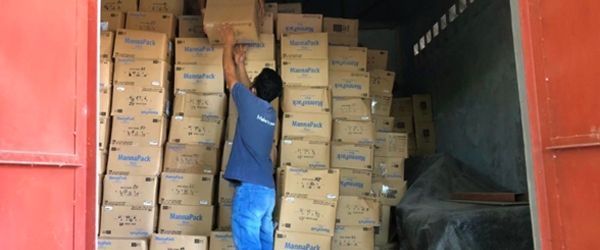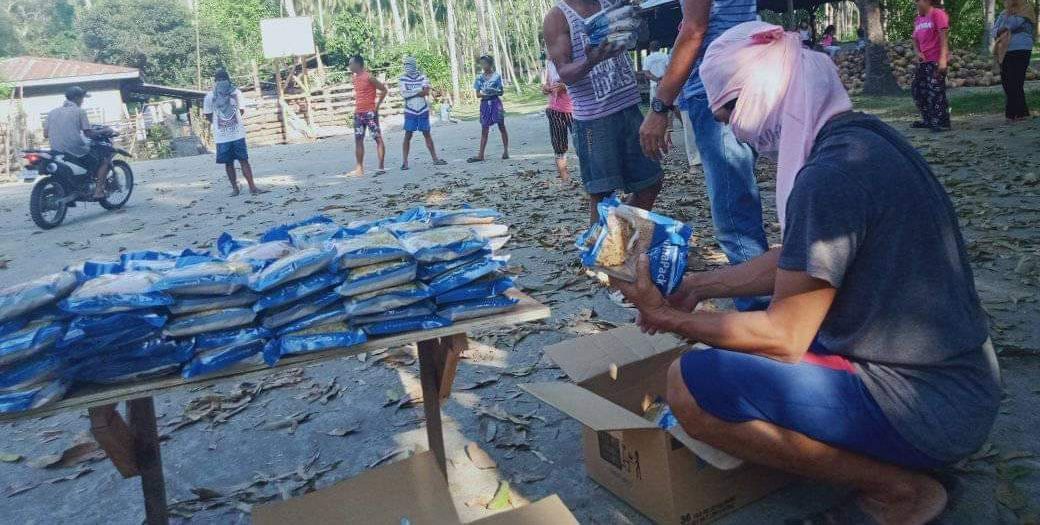
Ministry during COVID-19: Abundance of Manna feeds the hungry
After a Christian foundation donated 36,000 nutritional food packs to our team in Southeast Asia, one of our teammates there looked at the boxes filling the warehouse and uttered a rather unusual prayer: “I asked God, ‘Is there a famine in the land? Is that why you gave us so much to distribute to people in need?’”
The so-called Manna Packs, which contain nutrient- and protein-enriched rice, were intended for use at our team’s medical clinic outreaches in February. Some 1,000 people left their visits to our volunteer doctors with Manna Packs in hand.
Still, about 900 boxes remained.
“I wondered, ‘Will the rats get to the Manna Packs before we can distribute the boxes? Will this blessing become a burden?’” our team leader in Southeast Asia said.
And then a famine called COVID-19 hit the land.
“Where we are, people are not allowed to go outside the house. Many people started to panic about where will they get their daily needs met, especially those who live ‘ one scratch, one peck,’ or hand to mouth,” one of our teammates there said.
These folks used to earn just enough to buy their daily bread. Now, unable to work, they have nothing.

God’s provision of Manna Packs means hungry families have healthy food to eat.
Our team quickly pulled together a hard-working Manna Pack Task Force, which started texting and calling government officials, trying to figure out how to get the nourishing food God had provided months ago to communities outside the city borders. Cities have been divided into “cluster groups,” and a lockdown on travel between these groups, much less between regions, made distribution extra complicated.
On Monday, the team managed to cross through several cluster groups to meet a government vehicle that carried boxes to the Mapa community. On Wednesday, with no hassle, the team traveled to the northern border of the city to hand off boxes going to the Bapa community and the area near our team’s farm. In all, the team has distributed 540 boxes!
Because God provided these Manna Packs back in January, families without food are now eating.
But the famine’s not over. The COVID-19 quarantine in this country has been extended until at least April 30, so our team will do another round of distribution when there will be even greater need.
“God knew that what I thought could easily become a burden had a much bigger and unforeseen purpose,” said our team leader. “Praise be to God for how he works!”
In these days of global pandemic, life and ministry require daily adaptation. Your donation to SEND’s Crisis Response Fund will help us respond to needs that arise because of the COVID-19 virus. Click here to give.
Additional Posts





